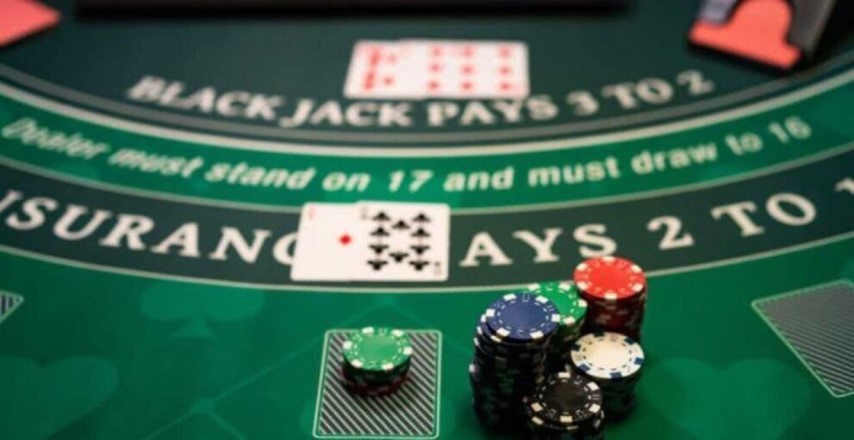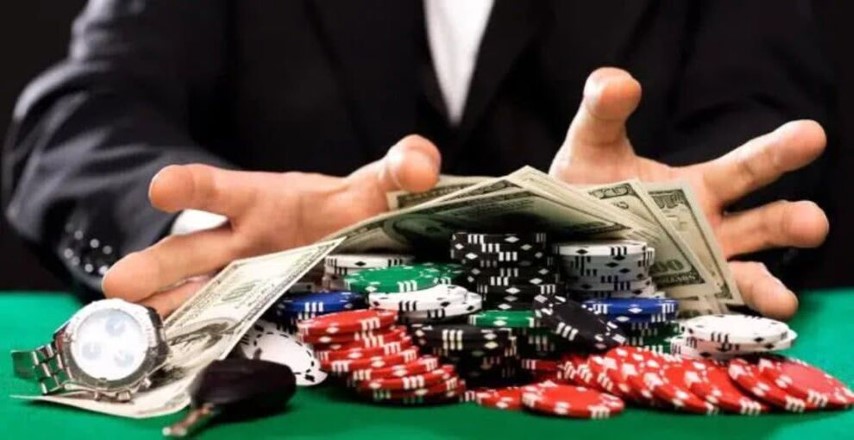When it comes to beating the house at blackjack, players have many mathematical tactics at their disposal that can assist them in gaining an advantage over the dealer and the game. Blackjack players can increase the amount of money they have wagered on the hand if they believe the situation requires it. The further you progress in the game, the more opportunities you’ll have to make judgments based on the information you’ve gathered up to that time. The strategies listed below are all possible successful techniques for winning at blackjack.
To begin, please allow me to explain how the gaming works
Blackjack can be played using one or more decks of 52 playing cards each, in the conventional style. A card’s worth can be determined by looking at the number printed on the card, the card’s face value, or, in the instance of an Ace, either one or eleven. A card’s worth can be determined in one of three ways. The object of the game is to gather a hand of cards with a total value equal to or less than 21, without exceeding the 21-point barrier. The player is dealt two cards and given the option to accept more cards in any quantity they deem fit. When deciding whether or not to continue drawing cards, the dealer must adhere to a series of processes outlined in specific regulations.
What specific components of the circumstance are currently working in your favor?
What would you do if you had a hand of 16 cards to play with? If you opt to stand or if the dealer has a powerful hand, such as a face card, you will most likely lose the game. If you do not win, consider increasing your bet. Even the drawing isn’t a significant improvement at this time. There is no way to avoid going over 21 and losing the game immediately unless you have a 2, 3, or 4. If you don’t, you’ll lose the game from the start. If you draw, you have a good chance of losing the game. As a result, holding 16 is not a particularly advantageous position.
So, if you had an eight in your hand, what would you do? When the following round begins, your next card will most likely be an ace or a card with a value of 10, and it will be dealt to you as the next card in that round. You have a strong hand regardless of how the hand plays out. As a result, a total score of eight is regarded favorably.
Consider another scenario in which you are dealt two 8s and see what happens. The value 16 is the least desired of the options on this hand. The great majority of casinos will let you divide two hands that contain the same two cards into two different games. Each of these hands will be made up of two different cards. If you continue in this manner, you will be expected to provide twice as much money as before. By doubling your wager in this manner, you can turn one bad hand into two favorable ones, giving you a chance to win the game. When it comes to the game of blackjack, how do casinos improve their odds of winning?
A fundamental method for winning at blackjack
When it comes to the game of blackjack, how do casinos improve their odds of winning?
It is advantageous for traders to be the first to act in any given situation. It is extremely typical for the player to surrender their wager without significantly increasing the amount of work for the dealer. Even if the player decides to keep their present hand, the dealer is still in the running for the pot.
When the rules of the game are changed in any way, the house edge might shift even further in favor of the casino. This is determined by the way the game is played. There are numerous casinos to choose from, each with its own set of rules that players must follow.
This is a fantastic illustration of how to keep the house’s structure intact so that it remains upright. Make a mental note of the total number of decks available to you. The house advantage in blackjack games played with a single deck is slightly lower than the advantage obtained by casinos in blackjack games played with multiple decks. The primary purpose for doing so is to help players keep track of how many high cards and picture cards are still in play. Even though counting cards is against the rules, it is feasible to make educated assumptions about which card will be dealt with next.
When the total is a soft 17, the dealer has the option of changing the odds by being forced to draw another card. If neither of these conditions is met, the dealer, regardless of whether or not the player has a blackjack, has a chance to win the hand if he stands on 17. As previously stated, there is also the option to apply the double-down rules, which can be used even after the pot has been split. The casino’s advantage over the player is reduced by roughly 0.15 percentage points as a result, making it more competitive.
Furthermore, casinos have an advantage over players in blackjack games because they allow players to “surrender” their hands. This means that the player will not accept any more cards and will instead receive a refund equal to half of their initial wager.
When playing blackjack, you have the option of looking at the odds or just playing. Most casinos pay three to two on blackjack, which means that if you bet ten dollars and get blackjack, you will receive fifteen dollars back. This is due to the normal payback ratio of three to two. Nonetheless, some casinos provide a bad return on blackjacks, such as 6 to 5 or something similar.
Before we can address the specifics of the plan, four considerations must be made
In a casino that allows surrender, you will only have the opportunity to use this option on the first two cards dealt to you. You will not be able to abandon the game if you have already been hit by one of the cards in the deck. The first decision you must make before starting to play your hand is whether or not to surrender. You will lose all of your chips if you do.
We must decide whether or not to go our separate ways in the next phase. This choice will only be available to you if the first two cards you were dealt were a pair or a king and a jack. If you were handed a pair of cards as your initial two cards, you will be given this option by default.
The strategy of doubling down is extremely effective. As a result of taking this move, your chances of winning the hand will improve. Before proceeding to the following round, make assured that you have eliminated all potential paths for doubling your wager on specific cards.
Then and only then should you proceed
When attempting to figure out the essential strategy for the game, you should not be considering whether or not to take another card. If you are unable to employ any of the other available alternatives, you have the option of either holding your position or resorting to violence.
The following are some critical guidelines to follow when putting the strategy into action
- If you have a hand of 16 and the dealer has a hand of nine or higher, including an ace, you should fold. If you have 15 and the dealer has 10, you should fold your hand as well.
- When dividing, you must always keep the aces and the eights separate.
- If you have a soft 20, you should always stand, and if you have a soft 19, you should increase your stake to compete with the dealer’s hand of six.
- If you have a soft 18, you should double it against the dealer’s cards 2 through 6 and hit against the dealer’s 9 if the dealer has any of those cards. If your hand is less than 17, you should think about doubling your wager against the dealer’s cards from 3 to 6.
- If the count is soft 16, then double it against the dealer’s four and six hands; if the count is soft 15, then double it against the dealer’s four and six hands. If the count is soft 17, multiply it by three against the dealer’s four and six.
- If the count is soft 14, double it in contrast to the dealer’s hand of 5, and if the count is this oft 13, double it in comparison to the dealer’s hand of 5.
- If the total is 17 or more, you must always stand; otherwise, if the total is 16 or lower, you must stand if dealer 2 has a 6 in their hand.
- If the number is 15, it should be played against the dealers’ 2 through 6; if it is 14, it should be played against the dealers’ 2 through 6; and if it is 13, it should be played against the dealers’ 2 through 6
- If the number is 13, you should play the hand against the dealers 2 through 6, and if the number is 12, you should play it against the dealers 4 and 6.
- If the value is 11, always double it, and if the value is 10, always double it against dealer 2’s 9, because both of these values are lower than the dealer’s hand of 9.
- Even if the dealer’s hand value is between 3 and 6, you should always hit if the count is 9. You should always stand if the count is 8.



